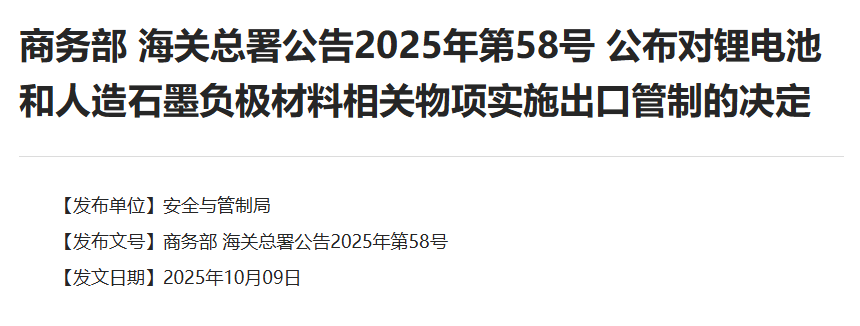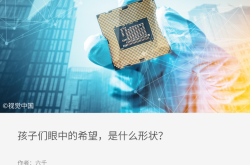China Imposes First-Ever Export Controls on Lithium-Battery Manufacturing Equipment: Industry Reactions Unveiled
![]() 10/13 2025
10/13 2025
![]() 554
554
China has just leveraged its technological edge in the lithium-battery sector as strategic bargaining power, reshaping the global new energy industrial chain with a new export control policy.
On October 9, China's Ministry of Commerce and General Administration of Customs jointly issued Announcement No. 58, imposing export controls on lithium batteries, cathode materials, graphite anode materials, and related manufacturing equipment. This marks China's first explicit inclusion of lithium-battery manufacturing equipment in export control regulations. Set to take effect on November 8, the policy spans the entire industrial chain, from key materials to core equipment.

The announcement clarifies that export controls are not an outright ban. Companies can still export by obtaining licenses, a measure aimed at regulating high-end technologies and core equipment while balancing industrial competitiveness and national security.
Precision Policy Targets High-End Technologies
The export controls focus on three key areas, reflecting a technology-centric regulatory approach.
For lithium batteries, the controls target high-end products with a gravimetric energy density of ≥300Wh/kg, directly impacting next-gen technologies like semi-solid and solid-state batteries. Mainstream liquid batteries (≈260Wh/kg) remain unaffected, sparing most companies from short-term disruptions.
Manufacturing equipment controls cover critical cell production machinery, including winding machines, stacking machines, and liquid injection systems. Companies can still export these items after obtaining permits, though compliance will increase time and financial costs. Modular and Pack equipment is exempt, minimizing disruption to overseas factories.
Mo Ke, founder of Real Lithium Research Institute, stated, "Lithium batteries are China's competitive edge. Export controls strengthen our strategic leverage." This underscores the policy's broader geopolitical and industrial implications.
Industry Remains Calm, Leading Firms Show Resilience
Lithium-battery equipment companies have responded with strategic maturity amid policy shifts.
Haimu Xing, a leader in lithium-battery intelligent manufacturing equipment, said, "Export controls don't restrict exports; licenses are still obtainable. The impact on our operations is limited." The company will monitor policy developments and mitigate risks proactively.
Leading Intelligent Equipment remains optimistic. Company representatives noted that most overseas orders stem from domestic battery manufacturers' global operations, which are unaffected. "The announcement imposes controls, not bans. Export licenses ensure business continuity," they clarified.
During an investor call, Ronbay Material, a cathode material giant, assured stakeholders that its overseas production facilities in South Korea and Poland would operate normally under the new policy, with capacity scarcity driving further value.
An anonymous industry insider commented, "Short-term business impacts will be minimal, but medium-to-long-term effects will steer the industrial chain toward healthier, localized, and strategically controlled growth." As AI-driven energy demand surges, battery storage has become a global strategic priority. Under this institutional framework, compliant firms with global operational expertise may gain more stable overseas market shares and improved profitability.




